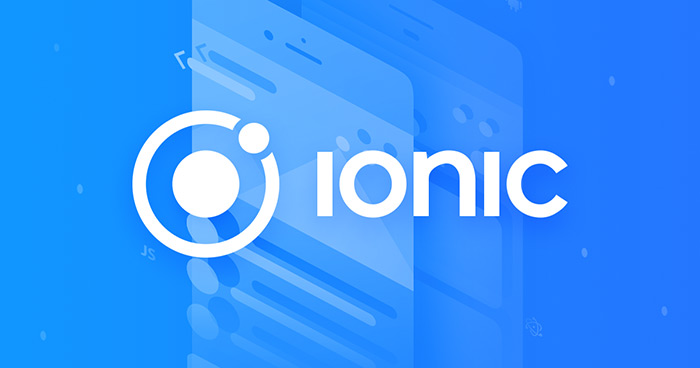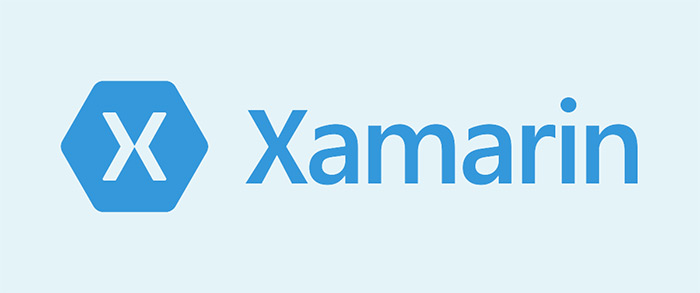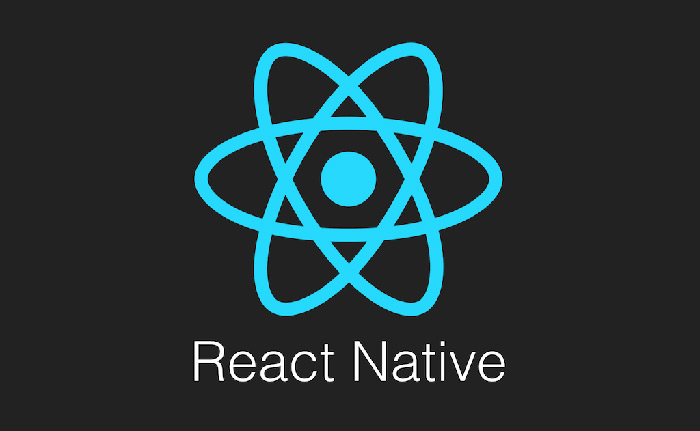7 Cross-Platform App Frameworks for 2020 and Beyond
- Created at:
- Updated at:
We live in the digital era where everyone who wants to make a living from their business, whether it is a large company or a small self-employed person who has just started, needs to have an internet presence, more specifically, a presence on internet-enabled mobiles.
And how do you achieve that today? Very simple, by creating your own mobile applications.
In today's society practically everyone has a smartphone, except for certain age groups where these devices have come into their lives too late and prefer to continue using more traditional and less complex methods of understanding.
For the rest, it is rare not to walk down the streets of any city in the world and see millions of people with their heads down and staring at their cell phone screen. It is a reality: if you want someone to know you, you must appear on your smartphone.
According to statistics for the last year 2019, more than 200 billion downloads were registered in mobile applications of all types.
This suggests the following big question: on which platform should I upload my application to have greater visibility, on Google Play or on Android?
The answer is clear and simple: on both!
Therefore, we are going to explain below what are the best multi-platform application frameworks for the year 2020, so that all those entrepreneurs seeking to boost the reach of their businesses through a mobile application can do so quickly and easily.
Because technology is the future and we should all have the tools and knowledge necessary to take advantage of all its benefits in the business sector.
Do you want to create your own multi-platform business app? Read on!
The first thing you need to do to create your own multi-platform application correctly is to understand why it is successful. Why does everyone want to have such an app today?
Well, because the figures speak for themselves, showing that during the past year 2019 there were more than 4 million registrations of new applications and more than 200 billion downloads of all of them by users around the world.
This is a good reason to think that having your own multi-platform app is a good plan, isn't it?
What is a multi-platform application framework?
We already know that having an app for our business is a good idea, but do we really know what a cross-platform application framework is and how it works?
A cross-platform application framework is like the essential dictionary of code that any application developer will use to create a mobile app that can be run seamlessly from any platform, even if they all share the same base.
This feature offers entrepreneurs a wide range of benefits to increase the visibility of their business in an easy and cheap way, especially those who are just starting out and do not have a budget too high for all that concerns the marketing management of their brand.
Main benefits of multi-platform application frameworks
1. The same code can be reused
The main advantage offered by this system is the ability for developers to use the same base code on different platforms. This will save us a lot of money by halving the operational management and time by not having to carry out the same tasks repeatedly each time you use a different platform.
2. Cheaper
It is clear that if we reduce production time and operational management, we will also end up reducing the total production costs of such an application.
3. Faster
Developing an application is already a very long and tedious process, so if we can save ourselves from having to repeat the same steps repeatedly in order to use our application on different platforms, so much the better. And that is precisely what we will achieve with multi-platform application frameworks: time, a lot of time.
4. Easy to integrate in the cloud
This is surely the benefit that would be the "icing on the cake" in the developer's world, since by creating a hybrid mobile application valid on any platform, we will also have direct and easy access to the cloud resources. Incredible, isn't it?
5. Easy maintenance
By only having to manage a single application with a base code valid for all platforms, maintenance will be much easier to carry out. In the event of any error in the application's source code, the developer will only have to modify it once, instead of correcting the error on all the platforms on which it is registered.
6. Uniform and intuitive application design
One of the things that most concerns application developers is the experience that users will have when using the app, since the simpler and more intuitive it is, the better it will be received by its audience. With multi-platform application frameworks, it is possible to create an application that will retain the same design and functionality on all platforms where it is used, making the user experience much more enjoyable and making the designers' work much easier.
7. Reduces development times
By using a multi-platform application framework we will be able to reduce the production times of our application by up to 80%, which will help us meet our long and short term deadlines and allow us to obtain an efficient and modern business application.
The 7 best multi-platform application frames of the year 2020
1. Flutter

This multi-platform application development framework is Google's best contribution to this sector, as despite being among the best in the 2020 list, its creation dates back to 2018. Google defines Flutter as "the best essential toolkit that any developer and application designer needs to create an efficient, beautiful and easy to use open source application for the whole world".
This platform works with a basic Dart coding language, but now also includes valid languages for Swift, Java, among others.
Pros
- Easy to use and intuitive
- Reduces testing efforts for developers
- Fast
Cons
- You lack a good guide library for the coding languages you use
- Does not allow you to manage large applications
2. Ionic Framework

This application is among the favorites of all multi-platform mobile application developers, both for its speed and for its simple interface that inherits common aspects in iOS and Android that make it really easy to manage and take advantage of all its resources. The platform works with a coding language such as HTML5, JavaScript and CSS for translations and its coding system reminds in many things of AngularJS.
This open source multi-platform application framework is owned by MIT and those who have used it have nothing but praise for the program, among which we highlight:
Pros
- It is the favorite of the best developers in the industry
- It has one of the best libraries of tools and coding components on the market
- Uses a universal base code
Cons
- The free version has certain limitations that can make our work more complicated
- For beginner level users it may be too complex to use
3. Xamarin

Xamarin is an open source multi-platform application development platform managed and created exclusively by Microsoft. This program is different from the rest of open source developers because it works based on the term WORA, which means that this platform has the ability to create programs capable of running smoothly on all common operating systems.
Pros
- Very simple mobile user interface that mixes aspects of the different operating systems in which it runs
- A great support of source code libraries, programming language and APIs
- Allows us to access NuGet packets and native system APIs
Cons
- It has a somewhat limited free version and its premium version has a rather high price for small businesses
- Does not work well in applications with too heavy graphics
4. Adobe Phonegap
As its name indicates, Adobe Phonegap is the contribution of the Adobe company to the sector of multi-platform application development, giving rise to one of the most robust open source programming applications of the moment.
Phonegap works with common coding languages among experienced developers, such as HTML, CSS and Javascript, which makes it much easier to create mobile applications with an intuitive interface and effective operation. In addition, unlike other programs, when working with Phonegap we can code with the different coding languages without any hardware restrictions.
Pros
- A wide variety of tools for creating applications directly in the cloud
- Compatible with third party tools and APIs
- It is independent of convoluted text commands
Cons
- The applications carried out by Phonegap take a little longer to load compared to the other native applications
- Not recommended for high performance GUI applications
5. React Native

React Native is the application development program created by Facebook. The platform has a wide code base to work with languages like JavaScript and uses the same code base as the rest of valid applications with iOS and Android.
It is a framework that stands out for its efficiency and speed, being able to create high performance applications in half the time of the rest of the competitors.
Pros
- Speed and performance
- It allows us to share the basis of our code
Cons
- Very advanced knowledge is required for the native modules
- Cannot be fully used for cross-platform
6. Corona SDK
The Corona SDK is a multi-platform open source framework very similar to Flutter, as both serve to create valid applications for cell phones, computers, intelligent televisions, tablets and desktop computers.
Pros
- Very easy to learn how to use
- You need to write
- It has a wide variety of plug-ins
Cons
- It is quite expensive
7. Node.js
This multi-platform mobile application development framework is considered the most powerful at the moment, being able to manage a wide variety of tasks simultaneously and creating applications that are generally always easy, beautiful and efficient.
On the other hand, it also has its own very complete coding library and in terms of execution it is fast enough. So we could say that this platform is the "Ferrari" of the multi-platform mobile application creation of the moment.
Pros
- Allows you to reuse the base code
- Speed and performance in equal parts
- Very complete library
Cons
- When too much work is demanded, power is lost
Wrapping Up
As you can see there are plenty of options that one can use to develop cross-platform applications. Your choice will primarily depend on the language you have preference using, or already have experience with. With such a varied choice, there is a good app development framework for everyone.
No additional information provided by user.
Popular posts
-
Commonly Used Packages and Plugins in Flutter
- 3
- 0
-
7 WordPress Maintenance Tasks to Avoid Technical Nightmares
- 0
- 0
-
How to free up space on iPad in 5 steps
- 3
- 0
-
How to clean PC (Windows 10 mostly)
- 0
- 0
-
13 Expert Ways to Know if Your Business Needs a Mobile App
- 2
- 0
-
Top 10 AR Travel Apps You Should Try in 2020
- 0
- 0